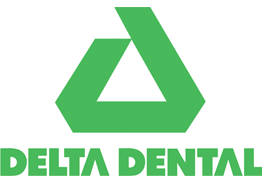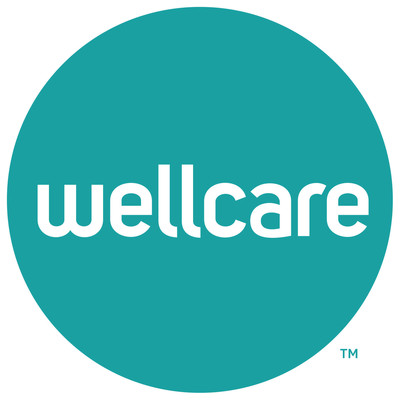Health Insurance
Individual Health Insurance



Quote/Enoll in Blue Cross and Blue Care Network Medical, Blue Dental and VSP Vision Coverage: https://cwinkler.coverageforone.com
Quote/Enroll in Individual or Family Delta Dental Coverage: https://www.mysmilecoverage.com/cfs
A type of policy that covers the medical expenses of only one person. Unlike group insurance, you purchase individual insurance directly from an insurance company or through an insurance agent. When you apply for individual insurance, you are evaluated in terms of how much risk you present to the insurance company. This is generally done through a series of medical questions or a physical exam. Your risk potential will determine whether you qualify for insurance and how much your insurance will cost. Individual insurance is somewhat more risky for insurers than group insurance, since group insurance allows the insurer to spread risk over a larger number of people. For this reason, individual insurance is generally more difficult to obtain and more costly than group insurance.
What types of providers offer individual insurance?
Many people who are covered by individual insurance policies purchase coverage through traditional insurers. Coverage is also available on an individual basis through managed health-care systems — health maintenance organizations (HMOs), preferred provider organizations (PPOs), and point of service (POS) plans. In fact, some states require HMOs to offer coverage to individuals during a special open enrollment period each year.
How do you get individual insurance?
To get individual insurance, you can either contact the insurer directly or get in touch with your insurance agent. You will probably want to get quotes from several insurance companies before you choose one, just to make sure you are getting the best coverage for your money.
Prepare to answer a multitude of questions
Before issuing an individual insurance policy, the insurer will want to know everything about your personal health history. It is unwise to try to hide a pre-existing condition from your insurer, since many insurers use information from the Medical Information Bureau to determine whether an applicant is insurable. If the insurer doesn't want to cover a particular health condition, you may still be able to get a policy with an exclusion rider. But if it is later discovered that you withheld information from your insurer, your coverage could be canceled altogether.
What are the benefits of individual coverage?If available, group insurance is frequently a better option, since it is often more comprehensive and less expensive than individual insurance. However, individual coverage is usually better than being uninsured in the event of illness or injury. Although you may think you can do without health insurance, you may be taking a major risk if you choose not to get coverage.
Greater freedom to customize policy provisions
In a group insurance situation, the provisions of the policy are negotiated between the insurer and master policyowner, usually an employer or association. With individual insurance, you are directly in control of your policy. You can negotiate to have certain provisions included or excluded, and you can often choose your deductible amount and co-payment percentage. Keep in mind, however, that the scope of coverage and the level of co-payments and deductibles will affect your premiums.
What are the disadvantages of individual coverage?
Often, your employer or association will pick up at least part of the cost of group insurance. When you purchase individual insurance, however, you are responsible for 100 percent of the cost.
Coverage often narrower and more expensive than group insurance
Individual insurance may not provide coverage as broad as group insurance policies in the same price range. Moreover, individual insurance is often more expensive to make up for the insurer's increased risk exposure.
May not be readily available if you are in poor health
Individual insurance coverage is, ironically, much easier to come by when you are healthy. If you are already sick or have a history of health problems, you may find it difficult to obtain coverage unless you meet federal eligibility requirements under federal law, which include having most recently been covered under an employer-sponsored group plan and not being eligible for group coverage. Group insurance, by contrast, is usually available without taking a medical examination or answering health questions.What should you look for in an individual policy?
If you can find one that offers individual coverage, an HMO, PPO, or POS plan can often give you the most cost-effective insurance coverage. If you are getting individual insurance from a traditional insurer, here are some things you should look for:
- Financially Stable Insurer
Look for an insurer with a favorable rating from A. M. Best, Moody's, or Standard & Poor's. It does you no good to have guaranteed renewable insurance if your insurance company goes belly-up.
- Guaranteed Renewability
Under federal law, the insurer can't cancel your coverage because you become ill. As long as you continue paying your premiums, your insurance coverage continues. Your premiums may go up over the years, but they will rise for all policies in your class, not just yours.
-
Coverage Of Preexisting Conditions
Many insurance companies impose a waiting period before covering preexisting conditions. The shorter this period, the better. Three months to one year is standard; anything over a year is extremely undesirable. However, the Patient Protection and Affordable Care Act prohibits preexisting condition exclusions for children, beginning September 23, 2010. In addition, individual plans that are not grandfathered under the Act are prohibited from preexisting condition exclusions for all insureds, beginning January 1, 2014.
-
Major Medical Coverage
Major medical coverage (which covers all hospital costs including rooms, emergency-room care, anesthesia, tests, X rays, and drugs) is preferable to hospital-surgical coverage (which covers only hospital and surgical services). Many policies do cover outpatient treatment, although cosmetic and other "elective" surgeries are rarely covered.
-
High Benefit Ceiling
-
Out-Of-Pocket Maximum
Also called a "stop-loss," this limits your out-of-pocket costs (e.g., deductibles and co-payments). Your maximum is a personal matter, since it really depends on how much you can afford to pay. Lower out-of-pocket maximums can mean substantially higher premiums, and if you never become seriously ill, you may never have to worry about your out-of-pocket costs.
-
Waiver-Of-Premium Provision
This allows you to skip your premium payments if you become seriously ill. The provision can be very important if you are unable to work for an extended period of time.
-
Highest Deductible & Affordable Co-Payments
Lower deductibles and co-payments mean your costs will be lower if you actually ever get sick, but you may pay dearly for this protection. By agreeing to a higher deductible or co-payment, you can cut your insurance premiums dramatically. And as long as you retain a reasonable out-of-pocket maximum, you shouldn't have to worry about medical costs getting out of hand.


